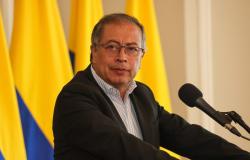Recent revelations in the case of Army espionage of a journalist show a more worrying panorama than initially feared, two corruption specialists comment in a column for CIPER: “The ongoing investigation has brought to light the existence of an improper capture state of the Judiciary, and its significant impact on the selection processes of magistrates. This fact shows that what is in question is not only a state crime […] but also of a systemic crime, the magnitude and consequences of which continue to be revealed, underscoring the depth of corruption and the lack of transparency in the institutions charged with safeguarding justice and our rule of law.
ANDhe case about illegal espionage against journalist Mauricio Weibel that is currently being investigated by the North Central Prosecutor’s Office [ver notas previas en CIPER] generates a justified stir. It arose in the context of the investigation that Weibel carried out a decade ago into the acts of corruption that later became known as “Milicogate”, and which were known for the first time. in a report for The Clinic August 2015.
To date, the research [N. de la Ed.: la cofirmante de esta columna es parte del juicio como abogada querellante] has resulted in the formalization of charges for 19 crimes and the preventive detention of General Schafik Gonzalo Nazal Lázaro, as well as the Minister of the Court of Appeals Juan Antonio Poblete Méndez. The first, in his capacity as head of Army Intelligence, ordered the interception of Weibel’s communications, as well as other victims. Minister Poblete, meanwhile, authorized these illegal interceptions.
The ongoing investigation has also brought to light the existence of improper state capture of the Judiciary, and its significant impact on the selection processes of judges. This fact demonstrates that what is in question is not only a state crime, perpetrated by state agents using public resources, but also a systemic crime, whose magnitude and consequences continue to be revealed, underscoring the depth of corruption and the lack of transparency in the institutions charged with safeguarding justice and our rule of law.
As we have already noted, corruption takes many forms; including “state capture” [ver columna previa de uno de los autores en CIPER-Opinión del 27.03.2024]. This phenomenon is linked to “taking advantage of a public position or function for the benefit of private, individual or shared interests.” [LÓPEZ 1997]which “generates a situation of dependency” [LESSIG 2012]. State capture affects the duty of the State and its institutions to safeguard the full validity of human rights. The Inter-American Commission on Human Rights (IACHR) has maintained that The capture of the administration of justice by other powers of the State results in the absence of horizontal control and the omission of inter-institutional control obligations [CIDH 2019].
In this sense, the background of the case—mostly obtained through transparency requirements and the search of the home of the former president of the Copiapó Court of Appeals—has revealed alarming information. Minister Poblete joined the Chilean Army as a reservist [ver reportaje previo en CIPER del 03.05.2023], and shared photos in which he wore his military suit while serving the interests of the Intelligence general. At that time, General Schafik was represented by the current minister of the Supreme Court, Mr. Matus, who had financing from the Army high command. As a result of this background, Minister Mr. Matus has stated that he is affected by a cause of inability to know the aspects of this investigation in the Supreme Court.
***
In parallel to all of the above, CIPER has revealed new information which demonstrate that, in the context of the secret investigation carried out by the Chamber of Deputies on illegal interceptions based on the improper use of the Intelligence law, the accused Mr. Poblete and the former Minister of Defense Mario Desbordes would have met. During this relationship, the current defendant requested the good offices and influence of Desbordes so that Minister Mrs. Letelier would become a member of the Supreme Court, emphasizing their friendly relationship. This friendship was not invoked by the minister when, a year ago (on June 19, 2023), she joined the criminal court that she heard and resolved the amparo presented by Mr. Poblete’s defense, granting him freedom. However, this freedom was later revoked by the Public Ministry and the plaintiffs, once the chapter complaint against the former magistrate was resolved.
Additionally, CIPER informed about the existence of communications between the accused Mr. Poblete and the Minister of the Supreme Court, Mario Rolando Carroza Espinosa. The latter has participated in the judicial investigation as a witness, and, according to reports, he would have asked Poblete for his collaboration in the appointment of a notary. These revelations add another layer of complexity to the case, evidencing the interconnection between different levels of the Judiciary and the influence exerted on processes that should be transparent and impartial.
***
Thus, the complexities that the ongoing investigation has revealed are at least worrying; not only in relation to the crimes that involved the interception of the communications of a journalist who denounced acts of corruption, but also in relation to the lack of judicial independence that had to be guaranteed. Among other victims, Mauricio Weibel had the right to impartial justice and effective control over the actions of the state intelligence apparatus by the Judiciary. The investigation reveals the absence of safeguards against an authority captured by the intelligence apparatus and the consequent weakening of the rule of law. This situation is aggravated when considering that, at least in the case of three ministers of the Supreme Court, there are inability to hear the judicial debates of the case.
This whole situation becomes more complex with respect to the implications and risks of state capture in the selection processes for high magistracies. This is even more evident when, upon opening a new investigation into influence peddling by the North Central Metropolitan Prosecutor’s Office, we learn that The National Prosecutor used his powers to, through a press release, inform that it has removed the regional prosecutor Mr. Xavier Armendariz Salamero from the jurisdiction of this new investigation, handing it over to the regional prosecutor Mrs. Claudia Perivancich Hoyuelos. This decision raises concerns about transparency and fairness in the conduct of the investigation, exacerbating concerns about the integrity of the judicial system. The press release is not enough to understand how the integrity of the investigation can be safeguarded by removing the prosecutor who has been in charge of it for four years and handing it over to a regional prosecutor from another jurisdiction.
In summary, the illegal espionage case and subsequent investigations have revealed deep flaws in the structure and operation of the judicial system in Chile. State capture and systemic corruption have not only violated the rights of individuals like journalist Mauricio Weibel, but They have also undermined public confidence in the institutions that should guarantee rights. Recent actions, including the removal of prosecutors and the involvement of senior magistrates, underscore the urgent need for profound reforms to ensure judicial independence and transparency in the administration of justice.






